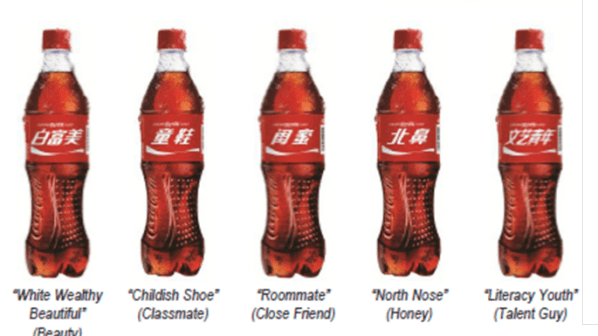With billions of active users on the internet, this online global market is a vast sea of opportunities for any brand.
Have you ever wondered what it would mean for your business to reach this ever-increasing audience? Or, what benefits do you stand to enjoy when you create localized content that resonates with the global market, irrespective of any existing cultural or functional barriers?
Adapting your content to suit a particular country or market is an excellent strategy that enables you to effectively connect with the target region.
As the internet becomes more popular, with millions of web pages being added daily around the world, more online information is being made available like never before.
However, availability does not always mean accessibility. This is due to language and cultural barriers that exist across diverse geographies.
When content is written in a language or format that differs from the language of the market, there is a good chance that the content will be ignored. For example, when content is written in English and directed at a Korean audience.
In some other cases, the disparity may not be a total difference in language but in more subtle diversities that distinguish one culture from another. An example is when typical U.S. content is presented to a British reader.
Whatever the case may be, when creating international content for your brand or website, translation and localization are tools you inevitably need to communicate effectively while retaining the originality and consistency of your brand.
- Localization vs. Translation: Defining the Terms
- Understanding the Difference Between Translation and Localization
- Localization Is Critical for Global Content
- A Good Language Service Provider Can Help Your Brand Stand Out
- Content That Resonates With Your Market
Download this post by entering your email below
Localization vs. Translation: Defining the Terms
Translation and localization are the two choices available to businesses wishing to expand geographically or produce content for international markets.
But very often, you’ll find that there is a lot of misunderstanding when people use these terms. Experts are aware that these two concepts are distinct and that, when used, they lead to different outcomes.
Let’s start by explaining what these words mean:
Translation
Translation is the process of converting an original language version of your web content, such as text, ebooks, apps, audio or video, into a different language.
This means that when you translate your website, you only alter the existing content to reflect accurate sentences in the target language. Here, the new text’s overall meaning, diction and tone remain identical to the reference text.
Localization
Localization is a broader and more specialized method of adapting your web content for use in a particular region or market.
It goes beyond a mere word-for-word translation to alter the content and visual elements of your site to better suit the cultural preferences of consumers in another region.
To make adjustments for cultural differences, the tone of your text, idioms and certain terms may be altered completely. Visual components like buttons might also need to be modified, and technical changes may have to be made to your website to make it easier for visitors from other countries to navigate.
Understanding the Difference Between Translation and Localization
Localization and translation differ remarkably. In some markets and for certain types of content, simple translation may be appropriate.
These content types often contain technical details or compliance information, and they include user manuals, medical prescriptions, technical publications and scientific journals.
However, in branding and everything marketing, localization is frequently used as a necessary tool to create cultural context and ensure that content resonates with audiences across geographies.
While translation is often associated with intent and clarity issues, especially when the source language is kept in its simple, word-for-word form, localization steals the show by incorporating the necessary cultural and technical nuances to successfully appeal to the target market.
It is for this reason that leading global brands use localization to modify their online assets for regional distinctiveness to ensure a high-quality consumer experience.
Example
Here is an example to demonstrate the differences between translation and localization.
In 2011, the Coca-Cola company launched its “Share a Coke” campaign in Australia. It featured the imprinting of about 150 popular first names on its products—a move that brought massive returns.
Subsequently, the brand decided to modify the execution to resonate on a global scale.
If the company had used translation to employ the same strategy in China, it would’ve simply changed the Australian first names to local Chinese names. However, to reach the Chinese market in a more effective way, Coca-Cola adopted nicknames like “Close Friend” and “Classmate” rather than regular first names.
This localization strategy preserved the campaign’s welcoming vibe by honoring the formality with which Chinese customers use first names.
Other examples of cultural and functional modifications for content across regions include:
- Societal codes and values (e.g., etiquette and relationships)
- Date and time formats
- Telephone numbers
- Measurements and geographical references

Localization Is Critical for Global Content
According to a report by W3Techs, 55.6 percent of all websites on the internet use English as their content language. Yet, only about 25.9 percent of internet users worldwide speak English. This leaves a large percentage of the online customer base untapped.
If your website is not localized to reach customers elsewhere in the world who are willing to make purchases, it is clear that your brand is losing out on a lot of potential profits.
The following are practical ways that localization helps boost your international content:
Increased trust
When your website takes into account the linguistic and cultural variations among different markets and their preferred languages, it demonstrates that your business is aware of and respects consumers and their cultures.
This promotes client trust. In a report by CSA Research, 64 percent of consumers say they explicitly appreciate localized information, while about 60 percent of non-native English speakers say they rarely buy from English-only websites.
These statistics prove that delivering information in a customer’s preferred language through localization can improve the way your brand is viewed and encourage customers to trust you more.
Improved interaction
Whatever consumers see daily, such as their favorite social media platforms and mobile websites, affects their behavior.
By making your online presence available in multiple languages across various platforms, you can be sure that consumers will encounter your products more often. This increased interaction with your brand will ultimately lead to an increase in sales and profits.
Improved user experience
An enhanced user experience directly boosts engagement and sales conversion rates while lowering bounce rates.
User experience has grown to be of the utmost importance, particularly in light of statistics showing that 74 percent of consumers will quit brands if they find the purchasing process challenging.
Better SEO performance
SEO localization can remarkably boost your brand’s visibility in the target region.
This occurs when you ensure that your content includes relevant keywords and terms used by searchers within the specific area you want to target, bearing in mind that Google works by location.
Beyond text, every element—photos, multimedia, social media, dynamic PDFs, metadata and more—can be localized with the right SEO localization solutions.
As your site ranks higher in local searches, you will attract more global client traffic. These visitors will benefit from an improved user experience and personalized information that speaks to them.
Better market segmentation
With localization, it’s simple to share personalized content with clients in various markets across the world. You can keep track of the needs of specific regions and adapt your content to provide suitable solutions.
The ability to create market segments and speak directly to local audiences with similar needs will enhance the effectiveness of your targeting and make messaging more efficient.
A Good Language Service Provider Can Help Your Brand Stand Out
Without adequate planning, the localization process can turn into a costly and time-consuming burden for your company.
Your website likely has a variety of content categories, including user-generated forum discussions, legal and technical information and marketing copy.
To increase your overall efficiency and optimize spending, you will need to consider the types of content that require localization on your website. For example, your sales copy and marketing content should be localized, while other texts, such as privacy policies and comments, can be translated.
You will require the service of a good LSP to analyze your target market’s needs and peculiarities before you can reap the benefits of localization.
Content That Resonates With Your Market
The effectiveness of your localization process depends a lot on your language service provider.
WriterAccess is a marketplace for professional translators that offer well-researched and effective localization services. With our exceptional planning, an efficient website localization strategy and results-oriented delivery, you’re sure to win international consumers with your perfectly adapted content.
Using our full suite of services that match your business with the best writers, editors and translators, you can be confident that your content will drive readers to take action.








